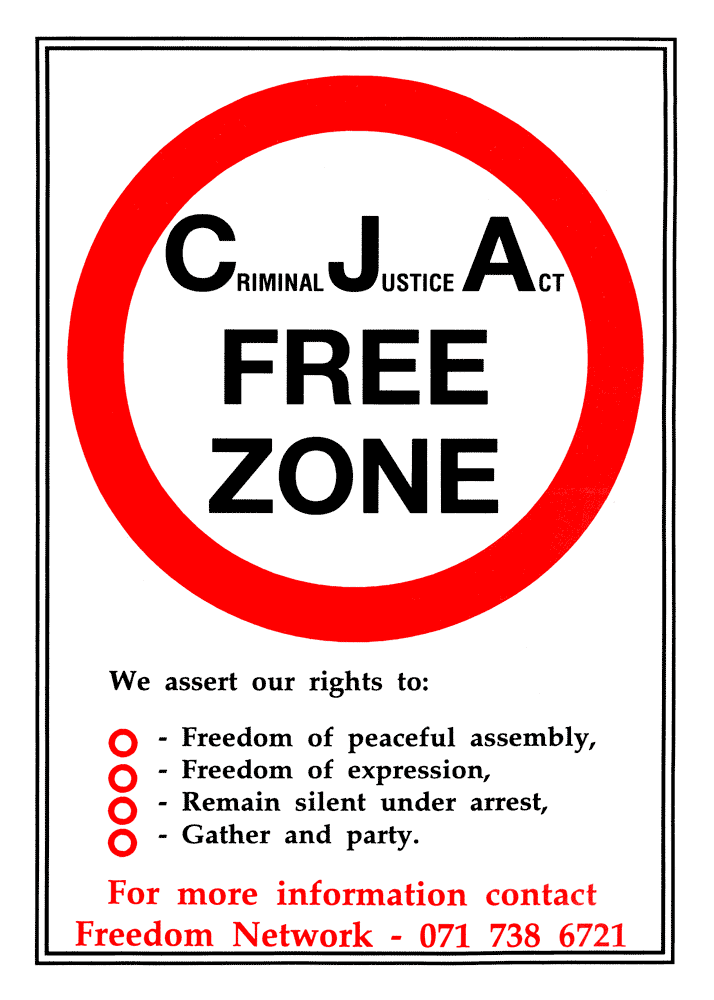
News Shorts & Other Busyness
Protest Squats On The Increase
Squall 8, Autumn 1994, pg. 6.
SQUATTING in areas outside of London appears to be on the increase. Ironically, responsible for this rise in the number of squatted properties is the Criminal Justice Bill, no less, which has provoked protest occupations across the country.
In July, a church hall in Swansea was occupied as a response to the CJB. In Blackburn, one man locked himself into a bank vault following the eviction of squatters on September 5th. When, also in September, a disused courthouse in Brighton was occupied, the CJB was 'put on trial' and found seriously wanting by all the visitors to the quickly set up community centre and cafe.
The Citizen's Charter definitely wasn't in evidence when the Rugby Civil Rights Defence Network squatted a building belonging to Rugby NHS Trust on August 14th. About 50 people were involved in the occupation of two adjoining Georgian houses, which had not been fully used by the Trust for two years. The houses have at least 20 rooms and parking space for 18 vehicles and the squatters outlined plans to turn the building into a community centre. They repeatedly attempted to negotiate with the NHS Trust but no-one would speak to them.
Whilst the building was occupied, the squatters used a telephone box outside the building. Someone reported to BT that the call box was “being used as a toilet”. BT said it received lots of similar complaints. Although the squatters were not directly accused, they say the implication was clear. These allegations are flatly denied by RCRDN, who made it clear to SQUALL that they know what to use a telephone box for. The phone was padlocked until the squatters were evicted on September 7th. As they were sitting outside the buildings on that day, a BT engineer arrived to remove the lock.
The RCRDN now faces court costs but protesters plan further actions against the bill.
Related Articles
Click here for a list of articles by SQUALL about the Criminal Justice Act and Public Order Act 1994 covering: the build-up, the resistance, the counter-culture, the consequences, plus commentary of its process through Parliament.
